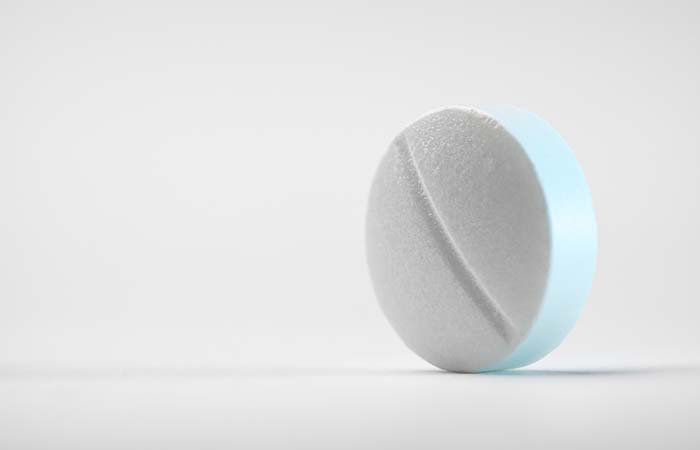Can Modafinil Effectively Manage Fatigue in Multiple Sclerosis?
Fatigue is one of the most common and disabling symptoms of multiple sclerosis (MS), affecting up to 78% of patients and often reducing quality of life and work capacity (Oliva Ramirez et al., 2021). Unlike ordinary tiredness, MS-related fatigue can appear suddenly, persist throughout the day, and is not always relieved by rest. Given the impact, clinicians and patients continue to seek effective treatment options.
One proposed therapy is modafinil, a wakefulness-promoting medication originally approved for narcolepsy, shift-work sleep disorder, and obstructive sleep apnea (U.S. Food and Drug Administration [FDA], 2015). But does the evidence support its use for MS fatigue?
Understanding MS-Related Fatigue
MS-related fatigue is more than simple tiredness. It is a multidimensional symptom influenced by neurological changes, immune activity, depression, and sleep disturbances (Induruwa et al., 2012). Key features include:
- Unpredictability – fatigue may occur suddenly, independent of activity.
- Persistence – symptoms often remain throughout the day.
- Overlap with sleepiness – some patients experience excessive daytime sleepiness, which may respond differently to treatment.
Because fatigue can arise from many mechanisms, finding an effective treatment has been challenging.
Modafinil: Mechanism and Approved Uses
Modafinil is classified as a wakefulness-promoting agent. Unlike traditional stimulants such as amphetamines, its precise mechanism remains unclear, but it is thought to involve effects on dopamine transporters, orexin pathways, and other neurotransmitter systems (Greenblatt & Adams, 2025).
According to the FDA label, modafinil is approved for:
- Narcolepsy
- Obstructive sleep apnea (as adjunctive therapy)
- Shift-work sleep disorder (FDA, 2015)
Its use for MS fatigue is off-label, meaning evidence is less robust and safety/efficacy have not been established in regulatory approval.
Evidence from Clinical Studies
Early Evidence: Open-Label Study
- Zifko et al. (2002): In an open-label trial with 50 MS patients, modafinil use was associated with improvements in fatigue severity and daytime sleepiness. However, as this was not placebo-controlled, results may have been influenced by bias or placebo effect.
Observational Insights
- Some clinical audits suggest that patients with both MS fatigue and excessive daytime sleepiness report greater benefits from modafinil, with some sustaining use for over a year (Induruwa et al., 2012).
Systematic Review and Meta-Analysis
- Ghazanfar et al. (2024): In a meta-analysis of controlled clinical trials, modafinil did not show consistent superiority to placebo for reducing fatigue in MS. While some individual trials found improvements, pooled evidence suggested modest or uncertain benefit, with more frequent adverse events compared to placebo.
Clinical Considerations
When considering modafinil for MS fatigue:
- Patient selection is critical – those with overlapping excessive daytime sleepiness may be more likely to benefit.
- Dosing – commonly studied doses are 100–200 mg in the morning; higher doses (e.g., 400 mg) have not shown clear added benefit and may increase side effects (Zifko et al., 2002).
- Safety profile – adverse effects include headache, nervousness, and insomnia; rare but serious risks include dermatologic and psychiatric reactions (FDA, 2015; Greenblatt & Adams, 2025).
- Non-drug measures remain important – energy conservation, exercise, sleep hygiene, and treatment of mood disorders are part of comprehensive care (Induruwa et al., 2012).
Conclusion
The evidence to date suggests that modafinil may provide benefit for some MS patients with fatigue, particularly those with concurrent daytime sleepiness. However, large, high-quality trials and recent meta-analyses indicate that overall effectiveness is limited and inconsistent.
For now, modafinil should be considered an off-label, second-line option, used selectively with close monitoring of side effects. A holistic management plan that addresses physical, psychological, and lifestyle contributors to fatigue remains essential.
References
- Ghazanfar, S., Farooq, M., Qazi, S. U., Chaurasia, B., & Kaunzner, U. (2024). The use of modafinil for the treatment of fatigue in multiple sclerosis: A systematic review and meta-analysis of controlled clinical trials. Brain and Behavior, 14(7), e3623. https://doi.org/10.1002/brb3.3623
- Greenblatt, K., & Adams, N. (2025). Modafinil. In StatPearls [Internet]. StatPearls Publishing. https://www.ncbi.nlm.nih.gov/books/NBK531476/
- Induruwa, I., Constantinescu, C. S., & Gran, B. (2012). Fatigue in multiple sclerosis: A brief review. Journal of the Neurological Sciences, 323(1–2), 9–15. https://doi.org/10.1016/j.jns.2012.08.007
- Oliva Ramirez, A., Keenan, A., Kalau, O., Worthington, E., Cohen, L., & Singh, S. (2021). Prevalence and burden of multiple sclerosis-related fatigue: A systematic literature review. BMC Neurology, 21(1), 468. https://doi.org/10.1186/s12883-021-02396-1
- U.S. Food and Drug Administration. (2015). PROVIGIL® (modafinil) tablets, for oral use, C-IV [Prescribing information]. U.S. Department of Health and Human Services. https://www.accessdata.fda.gov/drugsatfda_docs/label/2015/020717s037s038lbl.pdf
- Zifko, U. A., Rupp, M., Schwarz, S., Zipko, H. T., & Maida, E. M. (2002). Modafinil in treatment of fatigue in multiple sclerosis: Results of an open-label study. Journal of Neurology, 249(8), 983–987. https://doi.org/10.1007/s00415-002-0765-6








